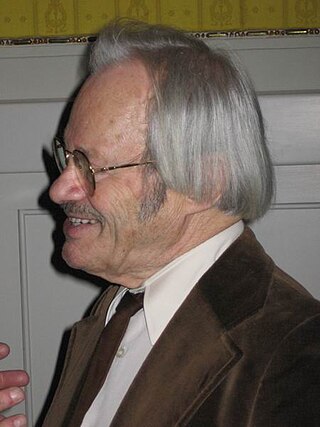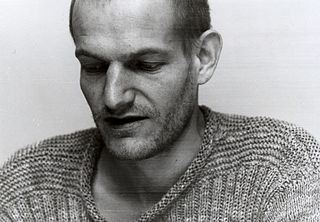
The University of Innsbruck is a public research university in Innsbruck, the capital of the Austrian federal state of Tyrol, founded on October 15, 1669.
Axel Corti was an Austrian screenwriter, film director and radio host.

Friedrich Cerha was an Austrian composer, conductor, and academic teacher. His ensemble Die Reihe in Vienna was instrumental in spreading contemporary music in Austria. He composed several operas, beginning with Baal, based on Brecht's play. He is best known for completing Alban Berg's Lulu by orchestrating its unfinished third act, which premiered in Paris in 1979.

Franz Salmhofer was an Austrian composer, clarinetist and conductor. He studied the clarinet, composition and musicology in Vienna. Salmhofer served successively as Kapellmeister of the Burgtheater, Director of the Vienna State Opera and Director of the Vienna Volksoper and composed a number of works, few of which are played today.

Wolfgang Mitterer is an Austrian composer and musician.
The Wittgenstein Award is an Austrian science award supporting the notion that "scientists should be guaranteed the greatest possible freedom and flexibility in the performance of their research." The prize money of up to 1.5 million euro make it the most highly endowed science award of Austria, money that is tied to research activities within the five years following the award. The Wittgenstein-Preis is named after the philosopher Ludwig Wittgenstein and is conferred once per year by the Austrian Science Fund on behalf of the Austrian Ministry for Science.

Lars Müller-Marienburg is a German-Austrian prelate who is the current Superintendent of the Diocese of Lower Austria in the Evangelical Church of the Augsburg Confession in Austria.

Gabriela Horn, known professionally as Paenda, is an Austrian singer, songwriter and music producer. She represented Austria in the Eurovision Song Contest 2019 with the song "Limits", which was released on 8 March.
The Oesterreichisches Musiklexikon is a five-volume music encyclopedia founded by the Austrian Academy of Sciences' Commission for Music Research. It was officially launched on 19 May 2002 with a concert in the main broadcasting hall of Österreichischer Rundfunk (ORF) in Vienna.
Christian Altenburger is an Austrian classical violinist.
Herbert "Happi" Prikopa was an Austrian television presenter, conductor, operatic tenor, actor, composer, writer, pianist and cabaret artist.

Ernst Hiesmayr was an Austrian architect, artist and former rector of the Technical University Vienna.
Uwe Harten is a German musicologist, who works in Austria.

Erich Schenk was an Austrian musicologist and music historian.
Walter Kolneder was an Austrian musicologist and violist.

Laura Rappoldi was an Austrian-German pianist.

Franz Thürauer is an Austrian composer, music educator and church musician.
Ernst Ludwig Leitner is an Austrian composer, organist and academic teacher.

Hans Haid was an Austrian folklorist, mountain farmer and dialect poet.
Gerlinde Haid (born Hofer was an Austrian folk music researcher.










